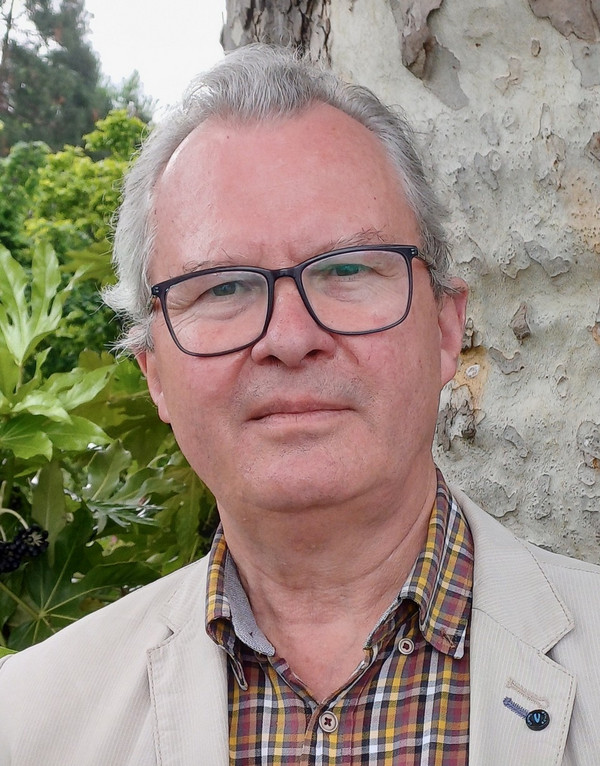Prof. Dr. phil., dipl. biol. Christoph Rehmann-Sutter
Completed research projects
Blood stem cell donation from children to their siblings: The child's well-being in an ethical conflict
Project management:
Prof. Dr. Christoph Rehmann-Sutter
Prof. Dr. Christina Schües
In the case of diseases that can be treated with a transplant of hematopoietic stem cells, there is a fundamental legal and ethical conflict: the well-being of one sibling is not the same as the well-being of the other. The procedure that is necessary to donate bone marrow or peripheral blood stem cells has no medical indication with regard to the donor child. The indication lies solely with the recipient child.
Detailed information on the project page.
Meanings and Practices of Prenatal Genetics in Germany and Israel (PreGGI)
Project management:
Prof. Dr. Aviad Raz
Prof. Dr. Christoph Rehmann-Sutter
Prof. Dr. Christina Schües
Importance and practices of prenatal genetics in Germany and Israel – a comparative, interdisciplinary study
Detailed information on the project page.
Deviations from medical guidelines in treatment of elderly oncology patients (DELIVER)
Medical guidelines reflect the current state of medicine and science. They are an instrument for ensuring high quality of treatment across the board. This is particularly important for life-threatening diseases such as cancer. There is now evidence that older patients often do not adhere to these guidelines. The DELIVER research project is investigating possible reasons, factors and processes that play a role in these deviations.
Detailed information on the project page.
BIONET -Ethical Leadership Guidelines for Biological and Biomedical Research: Sino-European Co-operation
The particular focus of modern biological and biomedical research on the genetic modification of organisms, the genomics of disease susceptibility and stem cells, as well as the therapeutic potential of gene therapy and stem cell technologies, is a key national, commercial and scientific priority in both China and Europe.
BIONET
- is building a sustainable network in and between China and Europe, which will document the reasons for and practices of ethical governance of this advanced biological and biomedical research in China
- provides a platform for the development of comparative research on ethical governance in China and the EU
- develops social science understanding of key bioethical issues, challenges and approaches in contemporary biomedical research through a dialogue between researchers and practitioners
- offers further training for scientists and practitioners in key topics and informs policy makers and practitioners about the ethics of biomedical research in China and the EU with a special focus on scientific co-operation
Ethical decisions about the fate of embryos: the views and approaches of couples during IVF
Project lead:
Dr. Jackie Leach Scully
Dr. Rouven Porz
Prof. Christoph Rehmann-Sutter
The creation of embryos through IVF has risen new technical possibilities and complex ethical issues. The aim of this project is to investigate the concerns, values, evaluations and decision-making processes of patients who have to decide what to do with embryos created during in vitro fertilisation that cannot be implanted. In this study, a survey was conducted on the possible options for parents of embryos and the decision-making processes used in IVF centres in Switzerland, followed by interviews with the parents of ‘surplus’ embryos.
NanoEthics – An interdisciplinary assessment of the risks and opportunities of nanosciences
Project management:
Prof. Sabine Maasen
Prof. Christoph Rehmann-Sutter
In the near future, nanoscience is expected to increasingly enter all areas of life with its applications and possibly transform them fundamentally, which is causing ambivalent reactions among the public. If nanoscience does not want to jeopardise its social acceptance, it must reflect on and control its effects on society. However, this puts it in an ambivalent situation itself: it has to put overly emphatic visions of the future back in a reasonable light, but without giving rise to disappointment; it has to take public concerns into account, but without abandoning its own research concerns. This challenge for science rises questions that were addressed in a two-stage project.
Detailed information (NanoEthics)
Project "Time": Decision-making processes in genetic diagnostics
Project leader:
Dr. Jackie Leach Scully
There is little information about how lay people use their situational and relational contexts to make their own moral judgements and what contextual elements account for differences in ethical attitudes. Previous work by our group suggests that time is a central element in structuring ethical views: for example, the time periods designated by patients and healthcare professionals in which moral judgement takes place often differ - which conversely influences the priorities given to morally relevant factors. In order to investigate the process of ethical decision-making, we decided to focus on the field of genetic diagnostics (pre- and postnatal testing). Since genetic diagnosis will be confronted with an increasing number of people in the future, and since hereditary conditions are mostly experienced over more than one lifespan, the ethical decision-making process in this field coincides with the element of time in an interesting and revealing way. Using semi-structured interviews and qualitative methods of analysis, we explored participants' approaches to ethical issues within genetic decision-making over time. It is clear that empirical data alone does not provide a normative moral judgement. The lack of a methodology that combines empirical research with ethical theory therefore represents an important gap in the understanding of moral behaviour. For this reason, the development of an appropriate methodology is another goal of this project.
Detailed information (Zeit)
